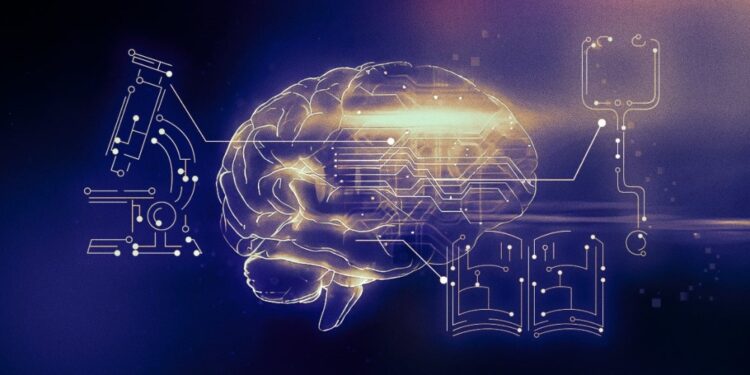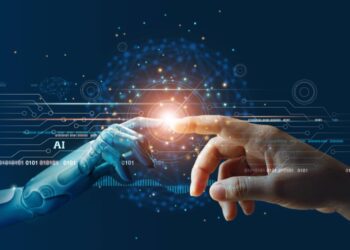Artificial Intelligence (AI) has rapidly transformed various sectors of society, reshaping the way we live, work, and interact. Its impact is felt in fields as diverse as healthcare, finance, education, entertainment, and transportation. AI refers to the simulation of human intelligence processes by machines, including learning, reasoning, problem-solving, perception, and decision-making. While AI offers numerous benefits, it also raises significant concerns and drawbacks that warrant careful consideration.
Benefits of artificial intelligence
AI has emerged as a transformative technology with the potential to reshape industries, revolutionize processes, and enhance human lives in ways that were once thought to be the realm of science fiction. Here are the benefits of artificial intelligence.
1. Automation and efficiency
One of the most prominent advantages of AI is its ability to automate tasks that were previously time-consuming and labor-intensive. AI-powered systems can perform repetitive tasks with high precision and speed, leading to increased efficiency and productivity in various industries. This automation allows human workers to focus on more creative, strategic, and complex tasks that require critical thinking and problem-solving.
2. Data analysis and insights
AI excels at processing and analyzing vast amounts of data, making it an invaluable tool for deriving meaningful insights and patterns from complex datasets. This capability is particularly beneficial in fields like healthcare, where AI can assist in diagnosing diseases, predicting patient outcomes, and discovering new treatments. In business, AI-powered analytics can inform decision-making, helping companies identify market trends and customer preferences.
3. Personalization and customization
AI-driven algorithms can analyze user behaviors and preferences to provide highly personalized experiences. This is evident in recommendation systems used by streaming services, e-commerce platforms, and social media networks. Personalization enhances user satisfaction, engagement, and loyalty by tailoring content and services to individual interests.
4. Accessibility and inclusivity
AI has the potential to make various services and technologies more accessible to people with disabilities. For instance, speech recognition and natural language processing enable voice-controlled interfaces, benefiting those with mobility impairments. AI-powered image recognition can enhance the visual experience for the visually impaired by providing descriptions of surroundings and objects.
5. Healthcare advancements
AI has revolutionized medical research, diagnostics, and treatment. Machine learning algorithms can analyze medical images (such as X-rays and MRIs) to detect abnormalities with remarkable accuracy. AI can assist doctors in diagnosing diseases like cancer, Alzheimer’s, and diabetes, leading to earlier interventions and improved patient outcomes.
6. Enhanced customer service
AI-powered chatbots and virtual assistants provide round-the-clock customer support, addressing queries and concerns in real-time. These systems can handle routine inquiries, freeing up human agents to focus on more complex interactions. As AI continues to advance, these virtual assistants are becoming more sophisticated, enabling more natural and context-aware conversations.
Drawbacks of artificial intelligence
While AI holds great promise, it also comes with its fair share of challenges. Here are the drawbacks of artificial intelligence.
1. Job displacement
One of the primary concerns surrounding AI is its potential to replace human workers. As AI systems become more capable, there is a risk of job displacement in sectors where routine tasks can be automated. This can lead to unemployment and income inequality, particularly for workers in industries vulnerable to automation.
2. Bias and discrimination
AI algorithms are only as unbiased as the data they are trained on. If the training data contains biases, these biases can be amplified in AI systems, leading to discriminatory outcomes. This is particularly concerning in areas like criminal justice, where AI-powered systems might unfairly target certain demographics. Ensuring fairness and equity in AI systems requires careful data curation and algorithmic transparency.
3. Privacy concerns
AI’s ability to analyze large datasets raises significant privacy concerns. Personal information, when processed by AI, could potentially be misused or breached. Additionally, AI-powered surveillance systems have raised concerns about the erosion of individual privacy rights. Striking a balance between leveraging AI’s capabilities and safeguarding individuals’ privacy is a complex challenge.
4. Dependence on technology
Society’s growing reliance on AI and automation could lead to a dependence on technology that leaves us vulnerable when these systems fail. Technical glitches, cyberattacks, or malfunctions in AI-driven infrastructure could have widespread and severe consequences. Maintaining a backup plan and investing in robust cybersecurity measures are essential to mitigate these risks.
5. Ethical dilemmas
AI raises complex ethical questions, especially as it becomes more integrated into decision-making processes. For instance, in self-driving cars, AI algorithms may need to make split-second decisions that involve moral considerations. Determining how AI should make such decisions, often referred to as the “trolley problem,” poses significant ethical challenges that require careful consideration and consensus.
6. Lack of human intuition
While AI excels at processing data and making predictions based on patterns, it lacks the nuanced understanding and intuition that humans possess. Creative thinking, emotional intelligence, and empathy are human qualities that AI struggles to replicate. This limitation could impact fields that require a deep understanding of human behavior and emotions, such as therapy, art, and certain aspects of customer service.
Conclusion
Artificial Intelligence has the potential to revolutionize industries and improve our lives in numerous ways. Its automation capabilities, data analysis prowess, and personalized experiences offer significant benefits that cannot be ignored. However, AI also brings with it a range of concerns, from job displacement and bias to privacy issues and ethical dilemmas. As AI continues to advance, striking a balance between harnessing its potential and addressing its drawbacks will be crucial to shaping a future where AI benefits society as a whole. It is essential for policymakers, researchers, and industries to work collaboratively to ensure that AI’s benefits are maximized while its drawbacks are minimized through careful consideration, regulation, and ethical oversight.


































































































































































































